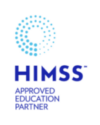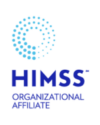Master of Science in Health Care Informatics
Healthcare Data Analytics Specialization



Request Information
Ready to Learn More About the MS In Health Care Informatics?
Healthcare Data Analytics Specialization
The Healthcare Data Analytics (HDA) specialization is intended for students who are passionate about a career in data science. In this track, students take a deep dive into all facets of data analytics as they apply to health care informatics, including biostatistics, machine learning and systems analysis and design. Courses in this track are taught by informaticists who currently work in data science, meaning our students get unparalleled insight and instruction from experts in the field of analytics. Graduates of this specialization will be able to proficiently utilize advanced analytics tools and programming skills to design unique solutions that solve a wide array of current and evolving health care problems.
This track is for students who: have some exposure to health informatics and are interested in working in data science, analytics or health informatics research. Many students who complete this track choose to pursue a career in health care research, data science and/or health care analytics and some will also go on to pursue doctoral-level studies in data science.

Are You an International Student?
If you are planning to seek a visa to attend the MS-HCI program on-campus, you will enroll in a full-time course of study that includes classes from both specializations and a practicum, for a total of 42 units.
Curriculum for Students in the Healthcare Data Analytics Specialization
- Take 8 core courses plus 2 specialization courses
- Optional elective courses may be available
- Graduate in 20 months (5 terms)
- IMPORTANT! All students will need a Windows computer prior to the start of class.
Orientation (Online students only)
Prior to beginning your first term, you’ll be required to complete the program orientation course, which generally takes about 12-16 hours. The course is self-paced but is mandatory. Please plan your schedule accordingly.
Orientation for on-campus students will be scheduled near the start of the term and coordinated with you directly by a member of our team.
Core Courses – Taken By All Students
| Course | Units |
|---|---|
|
Learn foundational knowledge and skills in health information management, informatics, and U.S. healthcare delivery, with a focus on compute… |
3 |
|
Equips students with the essential knowledge and skills required for the planning, analysis, design, and implementation of computer-based in… |
3 |
|
Acquire advanced database skills such as database design, data structuring, modeling and the development of database management systems.… |
3 |
|
Learn to use data analytics in addressing specific clinical queries, crafting clinical decision support rules, and employing precision medic… |
3 |
|
Examine the intricate hardware and software requirements essential for Electronic Health Records (EHRs), and trace the historical trajectory… |
3 |
|
Explore the role of leadership in driving innovation and change in healthcare organizations by examining leadership theories, ethics, values… |
3 |
|
Develop skills to evaluate data for the purpose of formulating, resolving, and empirically testing data-driven hypotheses.… |
3 |
|
Explore how information technology and healthcare intersect to address modern challenges in health sciences, emphasizing the evaluation of h… |
3 |
Healthcare Data Analytics Specialization Courses
| Course | Units |
|---|---|
|
Focusing on the Institute for Healthcare Improvement’s Triple Aim, learn how data analytics can be used to identify and address health dis… |
3 |
|
Explore a range of ML methodologies and learn how ML methods derive insights from data, facilitating prediction, classification, clustering,… |
3 |
Optional Elective for On-Campus Students (Not Part of Your Degree Requirements)
| Course | Units |
|---|---|
|
Gain practical experience in real-world healthcare informatics and data analytics settings, translating theoretical knowledge into practical… |
3 |

Technology Requirement
All students in the MS-HCI program are required to have a Windows-based computer by the start of their first term.
DEGREE PLAN For campus Students
All campus-based students will start in the Fall term.
Part time students will take 2 classes in the evening each term, with required coursework running year-round (Spring, Summer and Fall terms.) 30 units total.
Full time students will take 3 classes in the evening each term, with required coursework running year-round (Spring, Summer and Fall terms.) In the final term, there are only two required courses, but students wishing to take a third class may enroll in an elective. (42 units are required; 45 with the optional elective in the final term).
International students are required to enroll in the full-time option.
DEGREE PLAN For Online Students
Degree candidates are admitted throughout the year to begin their program during one of three terms (Spring, Summer or Fall). Students will take two courses during each 14-week term, focusing on one 7-week course at a time.
Download a PDF of your degree plan that corresponds with your start term.
Important dates for your starting term will be found in the degree plan. Important dates for subsequent terms can be found in your student success center after acceptance.
Frequently Asked questions
How much time will I need to dedicate to this program?
Study time will vary based on the course and your comfort level with the material being presented. Most online students say they spend about 20 hours per week completing their coursework and participating in discussion boards. Students enrolled in the on-campus program will take two to three classes concurrently, requiring an additional time commitment.
What is the difference between the online and on-campus versions of this program?
In terms of the quality of education you will receive, there is no difference between the online and the on-campus formats of the HCI program.
- Both formats are 30 units, although campus students can choose to take a full-time course of study totaling 42 units.
- The same material is taught by the same faculty across both formats
- The course learning outcomes and program learning outcomes are the same across both formats
Minor differences include:
- On-campus students interact with one another directly within the classroom while online students engage in virtual sessions and online discussion forums.
- The campus section only admits new students in the Fall, whereas the online section admits new students in Fall, Spring and Summer.
- Online students take one accelerated class at a time, and classes run year-round. Each online class lasts just 7 weeks. On-campus students take 2 to 3 classes concurrently over a 14-week term, depending on whether they are enrolled part-time or full-time. Campus students also attend courses year-round.
What courses will I take that are unique to the Healthcare Data Analytics Specialization?
- HCIN 600: Population Health Analytics
- HCIN 620: Machine Learning Applications for Health Care
What careers can I pursue with a Healthcare Data Analytics Specialization?
Typical job titles that graduates of this track pursue include:
- Decision Support Specialist
- Clinical Data Specialist
- Data Integrity Officer/Analyst
- Research Data Specialist
- Data Quality Manager
A Career in Health Care Informatics: How Big Data & Technology Are Creating New Opportunities to Work in Health Care
Free 21-page Book
Where Should We Send Your Health Care Informatics Career Guide?
"*" indicates required fields









